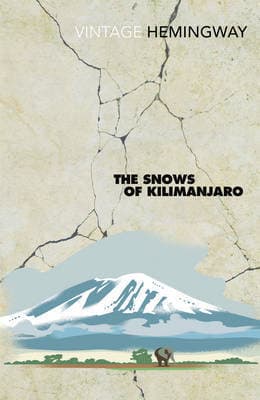
Book Review Summary: The Snows of Kilimanjaro and Other Stories
Introduction
"The Snows of Kilimanjaro and Other Stories" by Ernest Hemingway is a collection of short fiction that showcases the author's literary prowess. Hemingway's concise and powerful storytelling style, which has influenced 20th-century literature, is on full display in these stories. From haunting tragedy on the snow-capped peak of Kilimanjaro to brutal sensationalism in the bullring, from rural America to the heart of war-ravaged Europe, each of these tales is a masterpiece of description and imagination.
About Ernest Hemingway
Ernest Miller Hemingway, an American writer, ambulance driver of World War I, journalist, and expatriate in Paris during the 1920s, is known for his short stories and novels that concern courageous, lonely characters. His works, such as "The Sun Also Rises" (1926) and "The Old Man and the Sea" (1952), have earned him accolades and a Nobel Prize for Literature in 1954. Hemingway's life of adventure and his public image have also influenced later generations. He published seven novels, six short story collections, and two nonfiction works.
Analysis of Views
-
Powerful Storytelling: Readers praise Hemingway's ability to craft compelling stories that leave a lasting impact. His concise writing style, which emphasizes action and dialogue over descriptive passages, captures the essence of each tale, making it engaging and memorable.
-
Themes of Courage and Loneliness: Many readers find common themes in Hemingway's works, such as courage and loneliness. In "The Snows of Kilimanjaro," the protagonist reflects on his life and contemplates the choices he made that led him to his current situation. This introspection resonates with readers who can relate to the struggles of self-discovery and the search for meaning.
-
Brutal Honesty: Hemingway's writing is often described as brutally honest, tackling uncomfortable subjects such as war, death, and relationships. Readers appreciate his willingness to confront these difficult topics head-on, providing a raw and unflinching portrayal of human experience.
-
Mastery of Description: Hemingway's ability to describe scenes and characters with precision is highly regarded by readers. His vivid descriptions bring the settings and atmosphere of each story to life, immersing readers in the world he creates.
-
Influence on Literature: Hemingway's influence on 20th-century fiction cannot be overstated. His unique writing style and exploration of themes have inspired countless writers and continue to resonate with readers today. His works are considered classics and are often studied in literature courses.
Reasons for Recommendation
-
Engaging Storytelling: Hemingway's concise storytelling style makes it easy for readers to become immersed in the narrative. The short length of the stories allows for quick reads that can be completed in one sitting, making it perfect for those looking for a quick escape or a literary treat.
-
Thought-Provoking Themes: Hemingway's exploration of courage, loneliness, and existential questions resonates with readers. His stories provoke introspection and encourage self-reflection, making them valuable reads for those seeking deeper meaning in their lives.
-
Influence on Literature: As a pioneer of modernist literature, Hemingway's works have had a significant impact on the literary landscape. Reading his works provides an opportunity to appreciate the evolution of storytelling and gain insight into the influences that shaped contemporary literature.
Reasons for Not Recommendation
-
Lack of Resolution: Some readers find that some of Hemingway's stories lack resolution or end abruptly, leaving them feeling unsatisfied. This lack of closure can be frustrating for those who prefer a more conclusive narrative arc.
-
Limited Character Development: While Hemingway's concise writing style is often praised, some readers feel that it limits character development in his stories. Characters are often portrayed in a minimalist manner, making it difficult for readers to connect emotionally with them on a deeper level.
Conclusion
"The Snows of Kilimanjaro and Other Stories" by Ernest Hemingway is a collection of short fiction that showcases the author's literary prowess. Hemingway's concise storytelling style, powerful themes, and vivid descriptions make it an engaging read for both fans of short stories and those seeking deeper meaning in their literature. While some readers may find certain stories lacking in resolution or character development, the overall impact of Hemingway's writing cannot be denied. His influence on 20th-century literature and his ability to provoke introspection make this collection a must-read for anyone interested in exploring the human condition through literature.